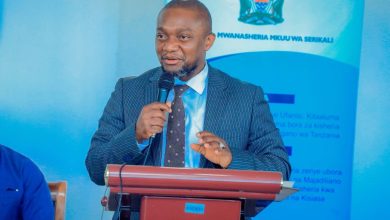Tanzania reaffirms commitment to fight sickle cell disease

DAR ES SALAAM: THE government has reiterated its strong commitment to combating sickle cell disease (SCD) through strategic partnerships with both local and international stakeholders.
The pledge was made during the official launch of the Africa Centres for Disease Control and Prevention (Africa CDC) Sickle Cell Disease Technical Working Group Meeting, held recently in Dar es Salaam.
Speaking on behalf of the Permanent Secretary of the Ministry of Health, Dr Seif Shekalaghe, the Executive Director of the Jakaya Kikwete Cardiac Institute (JKCI), Dr Peter Kisenge, stressed the importance of global collaboration in addressing the burden of sickle cell disease.
“No single country can defeat sickle cell disease alone. It requires a united effort from governments, research institutions, civil society and international partners to ensure that every child born with sickle cell disease has a chance to survive and thrive,” Dr Kisenge said.
He noted that Tanzania has made notable progress in recent years, including the integration of sickle cell care into its national non-communicable diseases (NCDs) strategy.
Dr Kisenge said key achievements include expanding newborn screening for early diagnosis, establishing sickle cell care clinics in primary healthcare settings, improving access to essential medications, such as hydroxyurea and strengthening national data systems to inform evidence-based policies.
He highlighted the global scale of the challenge, noting that over 300,000 babies are born with sickle cell disease annually, with more than 75 per cent of those births occurring in sub-Saharan Africa.
Without early detection and adequate care, between 50 per cent and 90 per cent of affected children die before the age of five.
ALSO READ: New dawn as 21 families triumph over Sickle Cell
“Tanzania is among the countries with the highest burden of sickle cell disease. An estimated 14,000 children are born with the condition here every year, yet many remain undiagnosed and untreated,” he said.
Africa CDC’s Head of Division, Dr Abdulaziz Mohammed, stressed the importance of building sustainable healthcare systems across the continent.
“Our goal is to empower primary healthcare workers to deliver high-quality care to sickle cell patients. We’re also strengthening surveillance and improving data systems from the community level to national and continental platforms,” Dr Mohammed said.
He added that the launch of the Africa CDC’s Technical Working Group in Tanzania marks a critical milestone in Africa’s progress toward achieving the African Union’s Agenda 2063, which envisions a continent free from preventable diseases.
Also speaking at the event, Steven Malege, a self-described “sickle cell warrior” who has lived with the disease since 2014, shared his personal journey.
“Before starting medication, I suffered from severe leg pain and constant fatigue. But now, thanks to folic acid and hydroxyurea, my health has greatly improved,” he said.





